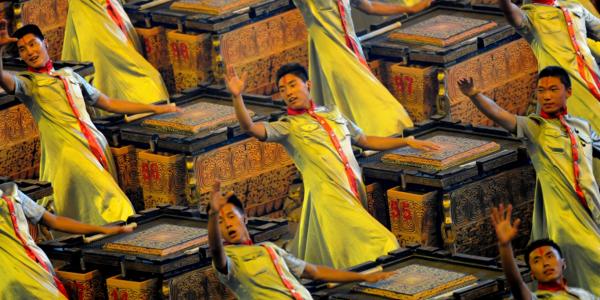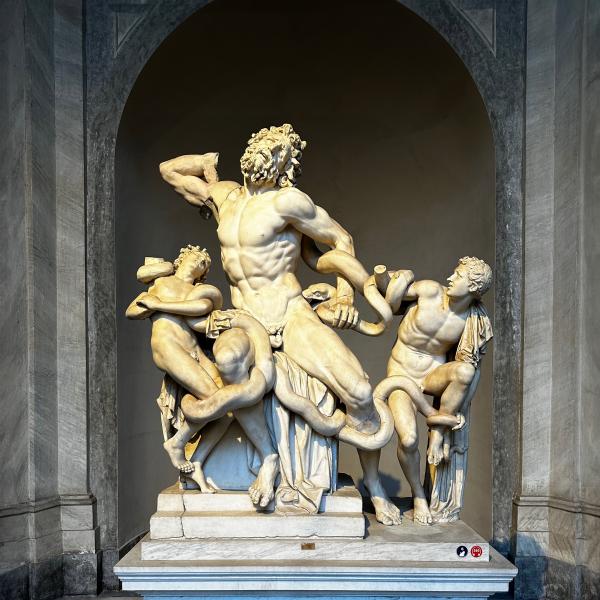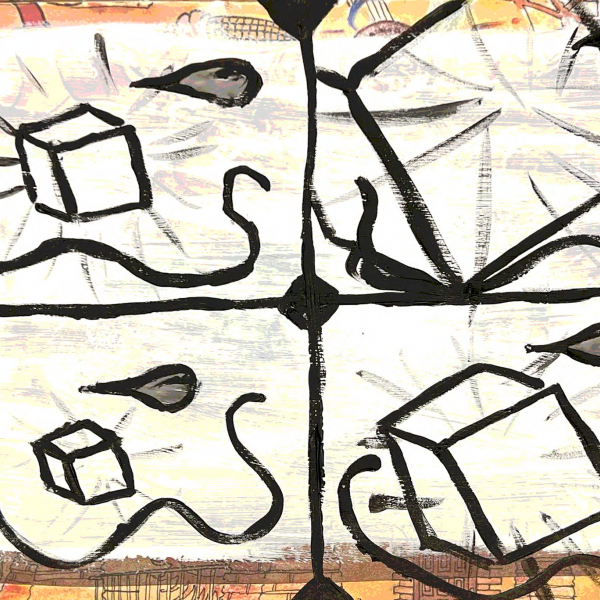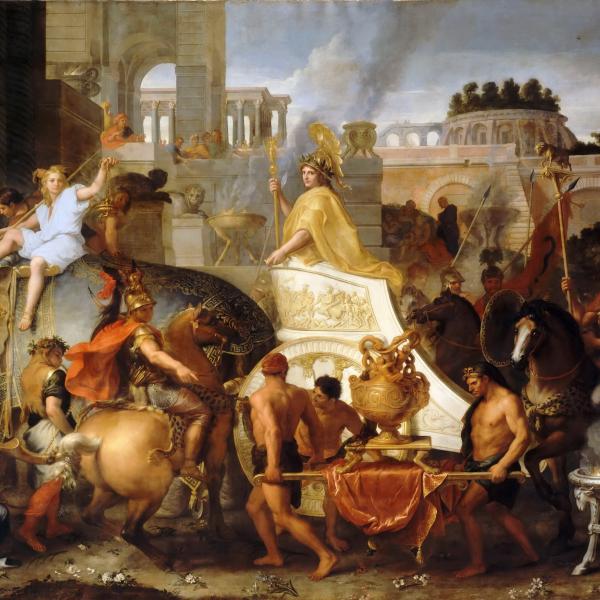During the 2008 Beijing Olympics Opening Ceremony, scholar Lingchei Letty Chen watched as the country dramatized its past glories, such as the Ming-era seafaring voyages of Zheng He. But absent from the pageantry was an impactful and much more recent era, Chen says.
It was 8 p.m. China Standard Time on August 8, 2008; the event was the XXIX Olympics Opening Ceremony and the venue, Beijing National Stadium, also known as the Bird’s Nest. This was the night China formally stepped onto the world stage with a fresh new look: bold, energetic, optimistic, peaceful, dazzlingly beautiful, technologically savvy, and dignified in its ancient culture and long string of accomplishments. Anyone who watched the opening ceremony — and in fact about one-third of the world population did so — would be given the impression that a new China had been born. Indeed, the advent of the 21st century had marked a rising China that boasted the world’s second largest economy and that had become the biggest foreign holder of United States treasuries, surpassing Japan.
Yet the tumultuous 20th century that had seen a war-torn and revolution-ridden China — the same century that had witnessed the founding of the People’s Republic of China — was conspicuously missing from the four-hour opening ceremony displaying China’s millennia of cultural and artistic triumphs. The omission of the socialist-communist period and absence of the pervasive icon of Mao Zedong announced a nation determined to forget, if not erase, the most recent bloody chapter of its existence. Clearly, this new China preferred the world to see only its prosperous present and promising future, without a hint of the past on which the PRC was founded.The deliberate absence of the Mao icon at China’s “coming out” party — for perhaps the first time at any major PRC state function — reveals the Chinese government’s cautious stance toward the Maoist period and its awareness of what this past regime stereotypically brings to mind for the world at large: a time that was isolating, oppressive, militant and heavily ideological. The design of the Olympics opening ceremony, particularly the unprecedented omission of the image of Mao, is also emblematic of the way in which the Chinese Communist Party curtails the collective memory of the Maoist past. While nations and peoples around the world continue to be amazed by and attracted to China’s booming economy and huge consumer market, it is all too easy to overlook and keep silent about what has been swept under the carpet. Among modern China’s many tragedies, one that is mentioned rarely, if at all, is the government censorship of the Chinese people’s right to remember the plights and traumas of various Maoist sociopolitical campaigns, primarily the Land Reform (1947–50), the Anti-Rightist Movement (1957), the Great Leap Forward (1958–62) and Great Famine (1958–62), and the Cultural Revolution (1966–76).
How does the Mao era (1949–76) matter to China and to the world today? The Mao era matters to China because, ironically, its failure in nation-building and, in particular, the extensive chaos and disruption of the Cultural Revolution allowed the subsequent regime of Deng Xiaoping to move China’s modernization project in a different direction, toward a capitalist style of market economy — what Deng called “socialism with Chinese characteristics.” Deng’s economic reform policies brought China out of poverty and isolation to become a formidable global power player in the 21st century.To the world at large, the Mao era matters because the massive scale of the carnage that took place during his reign is comparable to that of the Holocaust, but this has yet to be acknowledged. For the same reason that the lesson of the Holocaust is important to the world, the ramifications of the Mao era deserve our undivided attention.
People who choose to use their memories as source material to recount harrowing experiences of the Mao years may be motivated by different reasons. Some write to disentangle themselves from disquieting memories so that they can move on in life; some write to dislodge their sense of guilt for whatever they have done in the past; some write to gain relief from the moral responsibility they feel for the historical event in question; and others write to capitalize on their narrative of victimhood in order to gain a foothold in a new time and place. Whatever the motivation, these “memory works” attest to the traumatizing historical events that, even today, the Chinese Communist Party-led government allows to be remembered only in a tightly monitored way.







